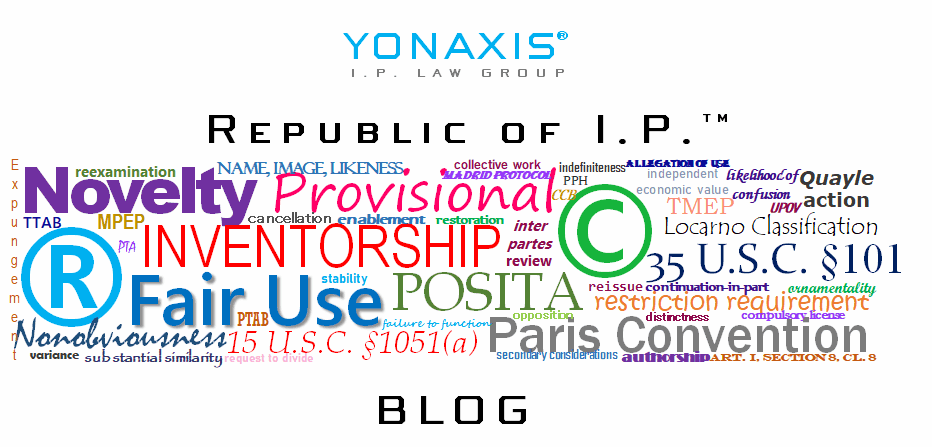Consistency in intellectual property regimes is essential for a uniform practice of those intellectual property laws. Case in point is Thaler v. Perlmutter,1 a copyright case holding that works created by artificial intelligence software is not a human author for purposes of the Copyright Act of 1976 (See 17 U.S.C. §102(a) (“Copyright protection subsists . . . in original works of authorship fixed in any tangible medium of expression”)). This mirrors an earlier patent case filed by the same appellant, Thaler v. Vidal,2 which held a patent inventor as defined as a human under the Patent Act. The patent case found that an “‘individual’ ordinarily means a ‘human being.'”3
Dr. Stephen Thaler, a computer scientist, had created an artificial machine, “The Creativity Machine.” Through input of various prompts, the AI machine created a work called “A Recent Entrance to Paradise” (the Copyright Office’s decision was discussed earlier on this blog). Dr. Thaler attempted to register the copyright before the U.S. Copyright Office but was refused registration based on the Copyright Act’s human authorship requirement. He subsequently filed suit in federal court to appeal the decision of the Copyright Office. However, these efforts failed, as, on March 18, 2025, a panel of the Court of Appeals for the District of Columbia affirmed the lower court decision – and the original refusal to register by the Copyright Office.
The constitutional requirement is that creative works are registered to “authors.” However, the decision noted that although the Copyright Act does not define “author,” the statutory requirement is implied based on two rationales. First, the Copyright Act’s exclusive rights are fundamentally property rights, and as a property right, under U.S. laws, a copyright can only be held by an individual or entity that can actually retain a proprietary interest in that property. This is something that an artificial machine cannot do.
Second, the Copyright Act places limitations on the term of a copyright, namely, for an individual author, the term expires seventy years after the death of that author as specified by 17 U.S.C. §302. Logic dictates that if a machine does not have a life, it therefore would not also have a death.
Third, the Copyright Act allows for inheritance of a copyright upon the death of the original author, to that author’s heirs and beneficiaries. A machine is not capable of inheritance.
Fourth, perfecting a transfer of ownership requires a formal signature, which a machine cannot perform.
Fifth, there are protections to authors of unpublished works based on their nationality or domicile. However, since machines do not have either a nationality nor a domicile.
Sixth, a human author has intentive thought. The example given by the appeals court was a joint work, where multiple authors “intend to merge their contributions into inseparable or interdependent parts of a unitary whole.”4 Since machines do not have “physical” mind, they would be incapable of having intentions.
Seventh, and perhaps most importantly, the Copyright Act discusses the term “machine” as a “tool,” or a “process or device” to assist an author about some particular result. An author is inferred as a human, and a “machine” acts as an assistive tool for the human.
The holding is premised under copyright law, but it is consistent with patent law in determining that authorship or inventorship can only be held in a human being. This precludes animals (see the monkey selfie case which we discussed earlier on the blog),5 and it also precludes AI machines.
This is a cautionary note for those authors or artists who use AI machines to assist in creating new works. While there are protocols for limited registration of AI-assisted works (which was discussed earlier on the blog), a copyright registration in the name of the AI machine is impossible under current U.S. copyright law.
For more information on copyright registration of AI-assisted works, or copyright in general, please contact Yonaxis I.P. Law Group.
- ___F.4th___ (D.C. Cir. 2025), aff’g 687 F. Supp. 3d 140 (D.D.C. 2023). ↩︎
- 43 F.4th 1207 (Fed. Cir. 2022), petition for cert. denied, 598 U.S.___ (Apr. 24, 2023) (No. 22-919). ↩︎
- See 43 F.4th at 1211, citing Mohamad v. Palestinian Auth., 566 U.S. 449, 454 (2012). ↩︎
- See 17 U.S.C. §101. ↩︎
- See Naruto v. Slater, 888 F.3d 413 (9th Cir. 2018). ↩︎

